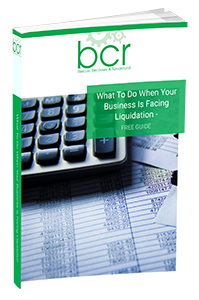A Company Voluntary Arrangement (CVA) is a legally binding document where you agree to pay back your creditors over a period of time. It is particularly useful for a business when cash flow is poor, and creditors are applying pressure for payment.
Companies have been able to take advantage of this process since 1986 when it was made law and indeed it’s one of the government’s preferred means of seeing a company get back on its feet.
Having a CVA agreed is a means of staving off a winding up petition (whether that’s been requested by HMRC or another creditor). It is also a way of legally ring-fencing the company so that it is protected from its creditors. Equally as important though, certainly in day-to-day business terms, it is also a way of instantly improving cash flow, as the company will no longer be required to meet all creditors’ demands per month – instead, just one payment will be made to the supervisor of the CVA.
Another plus of the CVA is that, unlike administration, the fact you’re in a CVA doesn’t have to be advertised in the public domain.
With a CVA, the directors and shareholders remain in charge of the company. In order for the CVA to be effective, your directors must be 100% committed to rescuing the company. As your insolvency practitioner, we will also be there to ensure the company complies with the CVA throughout its duration.
There is no set cost for a CVA. It depends entirely on how many creditors there are and how open they are to negotiation.
Want to know more about what options are available for your struggling company? Then get in touch with the BCR team today. We will always be happy to help out.

If your business is in trouble - if you are facing creditor debts, HMRC debts, or struggling to meet payroll, then you could be facing liquidation. Can your business be saved? Download our free guide, 'What To Do When You Are Facing Liquidation' now.
